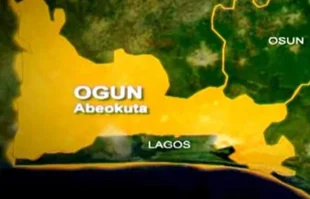Most Nigerians are not aware of Blasphemy law in Nigeria even though Anti-blasphemy laws are particularly common in Muslim-majority nations, such as those in the Middle East and North Africa, although they are also present in some Asian and European countries. Let look into blasphemy cases in Nigeria
Blasphemy Cases In Nigeria
Recently there was a case of Nigerian musician Yahaya Sharif-Aminu, 22years old in the northern state of Kano which was sentenced to death by hanging for blaspheming against the Prophet Muhammad in a song he circulated via WhatsApp in March.
This is not the first cases in Nigeria but Only one of the death sentences passed by Nigeria’s Sharia courts has been carried out since they were reintroduced in 1999
” in January 2002, Sani Yakubu who was convicted of killing a woman and her two young children during a robbery at their home in the northern state of Katsina.
The 27-year-old man was hanged and stabbed using the same knife he was alleged to have used to murder his victims. is the first execution since Islamic law or Sharia – was introduced in much of the north of the country.
States across Muslim-majority northern Nigeria use both secular law and Sharia law, which does not apply to non-Muslims.
Let Look into this Blasphemy, What is Blasphemy, and what is the effect in Nigeria also How Sharia court began in Nigeria.
What is Blasphemy?
Blasphemy is the act of insulting or showing contempt or lack of reverence to a deity, or sacred objects, or toward something considered sacred or inviolable from another source, blasphemy the act of insulting or showing contempt or lack of reverence for God
Some religions consider blasphemy to be a religious crime, Sixty-nine countries have blasphemy laws and penalties have hardened in parts of the world in recent years, according to a report on the status and rights of the non-religious while 87 nations had hate speech laws that covered defamation of religion and public expression of hate against a religious group.
The report identifies Saudi Arabia and Pakistan as “perennial” prosecutors for blasphemy and says freedom of thought is particularly penalized by Islamic penal codes and sharia-influenced laws.
The countries that have repealed blasphemy laws in the past five years are Norway, Iceland, Malta, the Alsace-Moselle region of France, Denmark, Canada, New Zealand, and Greece.
Blasphemy Law in Nigeria
In Nigeria, approximately half of the population are Muslims, about 40 percent are Christians, and roughly 10 percent are of traditional indigenous religions or no religion. While the constitution guarantees religious freedom, the state endorses numerous anti-secular and theocratic policies. The government and non-state militia such as Boko Haram constantly violate the rights to freedom of thought and expression.
The Customary law against blasphemy is found in Section 204 of the Criminal Code, which prohibits any act that publicly insults any religion and stipulates a prison sentence of up to two years.
Any person who does an act which any class of persons considers as a public insult on their religion, with the intention that they should consider the act such an insult, and any person who does an unlawful act with the knowledge that any class of persons will consider it such an insult, is guilty of a misdemeanor and is liable to imprisonment for two years.
Sharia Courts, on the other hand, are exclusively concerned with acts considered insulting to Muslims, the punishment for which can be as severe as execution. Most blasphemy accusations are made by Muslims against Christians and frequently trigger mob violence before any official actions like police arrests and judicial trials can be taken.
Twelve (12) out of Nigeria’s thirty-six states have Sunni Islam as the dominant religion. In 1999, those states chose to have Sharia courts as well as Customary courts.
A Sharia court may treat blasphemy as deserving of several punishments up to, and including the execution
List Of Blasphemy Cases in Nigeria
Below is the list of previously reported blasphemy cases that have occurred in Nigeria.
- In 1995, A group of Muslims broke into the police station and dragged Gideon Akaluka out of his cell at Goron Dutse prison in the northern city of Kano and beheaded him for blasphemy.
He was arrested after his wife allegedly used pages of the Quran as toilet paper for her baby. After the police locked him up, a group of Muslim fundamentalists broke into the police station cells, beheaded Akaluka, and paraded his bodiless head around the streets of Kano.
2. On 14 July 1999, in the village of Randali in Kebbi state, a Muslim mob beheaded Abdullahi Umaru. The mob accused Umaru of blasphemy against Mohammed.
Abdullahi Ada and five others killed Abdullahi Alhaji Umaru of Randali village in Birnin Kebbi Local Government Area of Kebbi State on 14 July 1999. Their action was based on an allegation that the said victim was accused of insulting the Holy Prophet Mohammad (SAW). Abdullahi Ada and his co-accused got the man arrested and took him to a place on the outskirt of the village. There, one of the first struck him with a cutlass on the head. The man fell down and with a knife, one the accused persons slaughtered the man by cutting his throat while the others held him down and it was when they were sure that the man had died that they abandoned the corpse and dispersed.
The Supreme Court in Lagos, Nigeria, confirmed the death sentence of Abdullahi Ada.
3. On 20 November 2002, Muslim and Christian mobs rampaged in the cities of Kaduna and Abuja.
The rampage began after an article in a daily newspaper, Thisday, suggested that Mohammed would have approved of a Miss World pageant that was taking place in Abuja. Thisday columnist Isioma Daniel wrote that Mohammed would probably have taken a wife from among the contestants. Muslim mobs accused the newspaper of blasphemy and burned down its office building in Kaduna.
Then the mobs attacked churches and properties owned by Christians. Christian mobs confronted the Muslim mobs. Soldiers and police intervened. About two hundred and fifty people died. Isioma Daniel fled Nigeria ahead of a fatwa that called upon Muslims to kill her.
4. In 2006, Florence Chuckwu, a school teacher in Bauchi was killed with other 20 Christians and two churches were destroyed in the town because she told her student to stop reading the Quran in the class while she was teaching the class English language.
5. In February 2006, Violence was ostensibly outrage at the publication in the Danish magazine Jyllands-Posten of cartoons that some Muslims consider blasphemous, Thousands of Muslim rioters went on rampages in different states. The rioters burned churches, torched Christian shops and homes, and killed Christians.
6. On 21 March 2007, a mob of Muslim students and neighborhood extremists lynched Christianah Oluwatoyin Oluwasesin, a mother of two and a teacher at Government Secondary School of Gandu in the city of Gombe.
Oluwasesin, a mother of two was assigned to supervise an Islamic Religious Knowledge exam. When one of the students wanted to enter the exam hall with his books, Oluwasesin collected them and threw them outside. The students claimed that one of the books was a copy of the Qur’an, This caught the attention of the popular thugs (Yan Kalare) who stabbed her to death. They then beat up the school principal, a Muslim,who luckily escape for offering refuge to her. They then burned down three classroom blocks, the school clinic, the administrative block, and the library.
7. On 28 September 2007, a Muslim mob rioted at Tudun Wada in Kano state. The Muslims complained that Christian students had drawn a picture of Mohammed.
The mob killed nine Christians, burned several churches, and destroyed the homes and businesses of some non-Muslims. The Christians reported that the violence erupted after they had prevented one of their members from converting to Islam
8. In October 2007, A sharia court convicted Sani Kabili, a Christian and a father of six, in the town of Kano for blasphemy against Mohammed. The court sentenced Kabili to three years in prison. In February 2009, an appeal court overturned the conviction
9. On 4 February 2008, a Muslim mob besieged a police station and set it on fire in the city of Yano in Bauchi state. The police station was the refuge of a Christian woman whom the mob accused of desecrating the Quran. One report said that the woman had spurned an offer of marriage from a Muslim man and that he and his companions had seized the opportunity to riot.
10. On 9 February 2008, a Muslim mob rioted in the town of Sumaila in Kano state. The mob acted upon the alleged distribution of a leaflet that allegedly slandered Mohammed. The mob killed a Christian police inspector and two civilians and wounded twenty others. The mob set fire to vehicles and destroyed the police station.
11. On 20 April 2008, Muslim rioters in the city of Kano burned the shops and vehicles of Christian merchants after one allegedly disparaged Mohammed.
12. On 9 August 2008, a Muslim mob in Kano state beat to death a fifty-year-old Muslim man who blasphemed Mohammed
13. On 19 June 2009, a Muslim mob in the town of Sara in Jigawa state burned a police outpost and injured about twelve people over alleged blasphemy against the Islamic prophet Mohammed.
The mob complained that someone was distributing blasphemous pamphlets, and it demanded that the police give up a mad man who had sought safety at the police outpost.
14. In 2016, 74 years old Bridget Agbahime was beheaded in Kano for refusing to allow the Muslims to spread their praying mats in front of her rented shop.
15. In 2016, evangelist Eunice Olawale of the Redeemed Christian Church of God was lynched by a group of Muslims in Abuja because she told them to accept Jesus Christ as their savior.
16. On August 10, 2020, a Nigerian singer was sentenced to death for blasphemy in Kano state.
An upper Sharia court in the Hausawa Filin Hockey area of the state said Yahaya Sharif-Aminu, 22, was guilty of committing blasphemy for a song he circulated via WhatsApp in March. He has been sentenced to death by hanging
17. On Thursday, May 12th, 2022, a female student of the Shehu Shagari College of Education in Sokoto State was mobbed and burnt by some students of the school for allegedly insulting Prophet Muhammad (SAW).
Note: The sentence would not be carried out as the death penalty in Nigeria requires the sign-off of the state governor. Only one of the death sentences passed by Nigeria’s Sharia courts has been carried out since they were reintroduced in 1999.
Many unreported cases of needless deaths abound on a yearly basis.
We at Naijabiography believe it is time for religious leaders and leaders of thought of both faiths to wake up and wade into these sporadic cases of wanton destruction of lives and property.
We urge all Nigerians to speak out against religiously motivated killings and embrace the values of unity, love, and peace. It is only through this that we can be a giant of Africa.

 on
on 




Comments
Abiodun Fatai
4 years agobut muslims used those opportunities to kill Christians as secret jihad